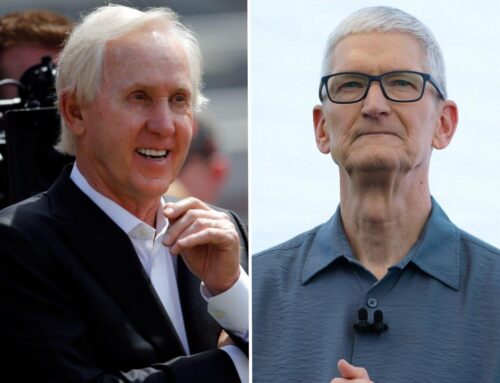Meta sued for alleged ‘rampant infringement’ of Eminem songs on Facebook, Instagram
June 2, 2025
Eight Mile Style, co-publisher of hundreds of Eminem songs, recently lost a long-running copyright infringement lawsuit against Spotify. Now, the company is setting its sights on another tech giant: Meta Platforms, owner of Facebook, Instagram and WhatsApp.
In a lawsuit filed on Friday (May 30) in a federal court in Michigan, the company – which owns publishing rights to 243 Eminem songs but is not affiliated with Eminem himself – alleged that Meta engaged in “rampant infringement” of Eight Mile’s copyrights by making Eminem’s music available in its platforms’ music libraries without a license for the songs.
“Despite their not being licensed, the recordings of the Eight Mile Compositions have been reproduced and synchronized with visual content on Meta’s platforms across millions of videos, which have been viewed billions of times,” lawyers for Eight Mile wrote in the complaint filed with the US District Court for the Eastern District of Michigan.
“Meta’s years-long and ongoing infringement of the Eight Mile Compositions is another case of a trillion (with a ‘T’) dollar company exploiting the creative efforts of musical artists for the obscene monetary benefit of its executives and shareholders without a license and without regard to the rights of the owners of the intellectual property.”
Meta Platforms has not yet filed a response to the lawsuit.
Faced with the problem of social media users uploading music to their posts without authorization, many social media companies, including Meta, have established licensed music libraries from which users can select music to use in videos and other media. However, Eight Mile says Meta never licensed the Eminem songs in which it owns rights – and the publisher alleges that Meta was aware of this.
It alleges that in late 2020, Meta negotiated a deal with digital music royalty collection agency Audiam (now owned by the Harry Fox Agency) for a library of music.
“Although Audiam did not have the authority to enter into any license on behalf of Eight Mile Style, Meta tried to negotiate, unsuccessfully, an Eight Mile Style license as part of the first Audiam license,” stated the complaint, which can be read in full here.
“Meta knew that no license was granted by Audiam or Eight Mile Style as part of those negotiations, and the Audiam license with Meta contained no reference to the Eight Mile Style Compositions.”
“Meta’s years-long and ongoing infringement of the Eight Mile Compositions is another case of a trillion (with a ‘T’) dollar company exploiting the creative efforts of musical artists for the obscene monetary benefit of its executives and shareholders without a license and without regard to the rights of the owners of the intellectual property.”
Eight Mile Style, in a legal complaint against Meta Platforms
Eight Mile’s complaint says that after the publisher brought the issue to Meta’s attention, the social media company “removed several of the Eight Mile Compositions from its Music Libraries… including Lose Yourself. However, a karaoke version (titled Lose Yourself (In the Style of Eminem)), a piano instrumental cover (titled Lose Yourself (Piano Version)) and one regular cover version by artist URock all remain available as of the date of this complaint.”
Eight Mile’s lawsuit seeks “monetary damages… for the diminished value of the copyrights by defendants’ theft of them, lost profits, and defendants’ profits attributable to the infringement, or alternatively maximum statutory damages for willful copyright infringement for each of Eight Mile Style’s works ($150,000 per work, times 243 works, times 3 platforms).”
The lawsuit comes less than a year after a federal court judge in Tennessee dismissed a lawsuit that Eight Mile Style had brought against Spotify, which alleged the streaming giant had failed to pay royalties owed to the publisher for use of Eminem’s music over years.
The judge concluded that, despite Eight Mile’s copyrights being legitimate, the company had attempted to enrich itself and abuse the legal system by obscuring the ownership of Eminem songs.
“The law has long disfavored plaintiffs who strategically exploit regimes of civil liability to maximize their own recoveries at the expense of the public good and in contravention of basic principles of fairness,” the judge wrote in her ruling.Music Business Worldwide
Search
RECENT PRESS RELEASES
Related Post





